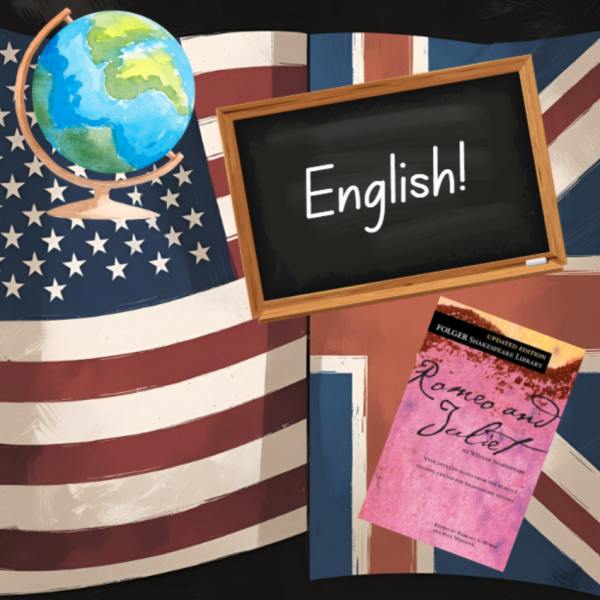Radnor Education, We Can Do Better
March 12, 2021
What is the purpose of school? I have grappled with this question over the past few years of my high school career, wondering why we spend seven hours every weekday in these institutions. As an elementary school student, I primarily went to school to see friends and play at recess, but I always loved what we were learning and the way we approached each new topic. High school, however, feels more like a painful chore; each day brings more stress, more complaining, more tears than smiles. Learning new information should be engaging and motivating for students, but instead most high schoolers push through the day in a daze, waiting for the 3:10 bell and dreading the long night of homework that awaits us.
One flaw with the high school education system is the focus on covering as much material as possible instead of going in-depth enough with specific subjects. It is as if school is a factory, churning out products to meet consumer standards with little attention paid to quality. While every student needs to meet educational requirements, it seems as if there is no purpose to high school beyond appearing flawless and getting into college. High school is a time when our minds start to understand abstract concepts, and we can begin to investigate complex issues in the real world. After three exciting, carefree years of middle school, ninth-graders arrive at RHS with ambition and determination. That passion, however, is wasted. While teachers could capitalize on our commitment to school, too many students lose motivation as the reality of a mundane high school routine sets in. Additionally, if teachers approached every subject with enthusiastic and innovative lessons, grades and test scores would also improve. Students would pay better attention, and teachers would not need to spend as much time on test prep because we could learn from our experiences in the classroom. For my peers and me, drowning in pages of informational text and completing worksheets on our own is drastically counter-productive.
While Covid does pose challenges for creative teaching, it is not impossible. Scientific evidence proves memory retention, and therefore learning, is improved with interactive assignments. Neurologist Judith Willis demonstrated that dopamine, endorphins, and oxygen increase during enjoyable tasks, all of which increase memory retention. A project, for example, is a productive way to apply knowledge through a memorable experience. Nonetheless, we need to have guidance and explanations to truly learn. Placing an unclear project prompt in front of us and saying “Get started” does not help, especially if it involves new material teachers expect us to master on our own. A lack of instruction creates anger, confusion, and wastes our time. Assignments need to be intentional, and teachers should have a clear idea of how each one we complete will advance our understanding of the subject. I hope that when we all return to the classroom next year, we can take advantage of interacting with everyone in one place with possibly no/less social-distancing. Powerpoint Presentations or lengthy pdfs can cover large quantities of information in a short time, aiding teachers in this difficult environment, but they generally do not provide mental stimulation for us students. Spending days or weeks struggling to comprehend information we have never been taught before, with little help from the teacher, does not imprint it in our memories. For productive class time to reach its full potential, students need to engage in thought-provoking discussions during which teachers readily accept questions and explain high-level concepts.
This article is not intended as an opportunity for me to dump on the RHS teaching staff. In fact, I have many amazing teachers, and I know that there are better ways to teach and learn from my experiences at RHS. My favorite style of teaching is when my teachers don’t complete a single period without interacting with every student in the class. Whether they are in-person or online, these teachers make sure to always involve students in the lesson. Class feels worthwhile when every example we go over has a purpose and illustrates important concepts. This method is effective because students are forced to interact with the material, the teacher, and each other. Failing and struggling are a fantastic way to learn as long as the teacher always helps us understand what we did wrong. The more kids actively apply what they are learning, with constant and patient feedback from teachers, the more useful and interesting class time becomes. By contrast, if the teacher talks for 85 minutes or assigns mundane reading, students experience more boredom than learning (if any learning at all).
If school is so dull, why do students never try to make a change? To start, the district does not give us an obvious path for expressing constructive criticism. There are no evaluation forms or feedback sessions where students can voice what they liked and disliked about their classes. Furthermore, from a young age, society enforces the idea that teachers deserve the utmost respect. I completely agree that we should respect our teachers, but sometimes the line between respect and complacency becomes blurred. The pressure to maintain perfect grades and GPAs influences most kids to complete all assignments they are given, even if they appear pointless. An activity that pushes students to apply knowledge, employ creativity, and think deeply is likely more challenging than filling out worksheets, an idea that frightens students. Due to these concerns, kids find themselves trapped between the misery of school as it is and the fear of trying a new learning approach.
Because all of us, including students, teachers and parents, focus so much on the future and on achievement, we forget to live in the present, and we sacrifice the quality of each day. With effort and commitment, I still believe school could be a joyful place, not just because we get to see our friends, but also because each class would spark genuine interest and curiosity in students.







